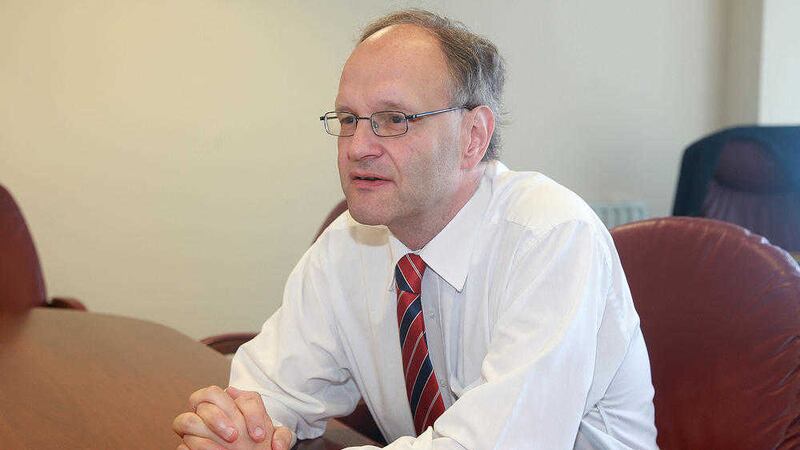DEAR Peter Weir,
Sorry for the delay in congratulating you on your appointment as minister of education, but there has been so much else to write about recently. You know the sort of thing - Brexit, border polls and the ghost of Nama stalking the corridors of Stormont.
But we will ignore all that and wish you well in your new job - and that is why we are writing. What exactly do you think your new job is? The only clue we have is your decision to retain academic selection. In fairness, that was not particularly difficult, since it had not gone away, you know.
You say selection is in the best interests of children (which is debatable) and that every child now has the opportunity to enter grammar school (which is even more debatable).
Academic selection suggests that children should be divided into two groups at the age of 11, in the belief that intelligence, ability and potential are fixed and are not influenced by family income, living conditions, parental support, wider community culture or rate of personal development.
That is why Theresa May supports grammar schools, which you say can "secure impressive outcomes for those who will derive the greatest benefit from them". Does that mean that other schools cannot secure impressive outcomes?
In fairness, you point out that "Those who did not attend Grammar schools" (we just love the use of the capital 'G') have made a significant contribution to society, which is presumably not quite as good as securing impressive outcomes.
So your argument is for educational segregation at the age of eleven. You are perfectly entitled to your view, although it seems to run counter to the Programme for Government's (PfG) aim of reducing educational inequality.
Maybe you could clear up the confusion by explaining what you think education is and what you think it is for. (I know it is a big ask, but if you cannot define education, how can you make policies for it?)
Secondary schools generally are not as well equipped as grammar schools, so it is also difficult to see how academic selection relates to another PfG aim of giving our children and young people the best start in life. The budgetary challenges in your department will make life more difficult for many secondary schools.
Your pro-selection policy faces another looming problem in relation to what grammar schools should teach their academically selected pupils, in preparation for university.
You will know that universities here are now under the control of your party colleague, Simon Hamilton's, economy department. (London and Dublin still regard universities as educational institutions, under their education departments. Stormont sees education as a business - the same sort of business which gives money to airlines.)
This business culture is apparently reflected in Queen's University's reluctance to see the relevance of history (here, of all places) and its recent decision to axe its single honours sociology degree.
(Maybe Queen's penal laws mean that sociology and history will now be taught in hedge schools? There are plenty of hedges along the Malone Road where students and teachers could huddle out of the rain, hiding from the equivalent of the established church's representatives hunting down academic dissenters.)
In many areas, such as medicine and nursing for example, Queen's is an excellent university, but it seems intent on drifting more towards business and science, in accordance with its role in the economy department. What do you think of that decision?
Is it in line with minister Hamilton's policy, DUP policy or Stormont policy? Indeed, does any party have a higher education policy? It would be helpful to be told.
You see, your schools are teaching environment and society at Key Stages 3 and 4, while one of your party colleague's universities is reducing its sociology provision. Is that the joined up government we have been promised?
Do you intend to change your academic selection tests to take account of our universities having an economic, rather than a wider educational function? (Selection test, Q 1: Have your parents enough money to send you to university?)
It is easy to explain your attitude towards grammar schools and Stormont's belief that higher education is a business. The answer lies in a subject called sociology. How we arrived at this situation can be explained by history.
That would appear to be two very good reasons for discouraging the teaching of these subjects. If there is no one left to explain what government is doing, then government can do what it wants.
Now there is something which should be in the Programme for Government.









